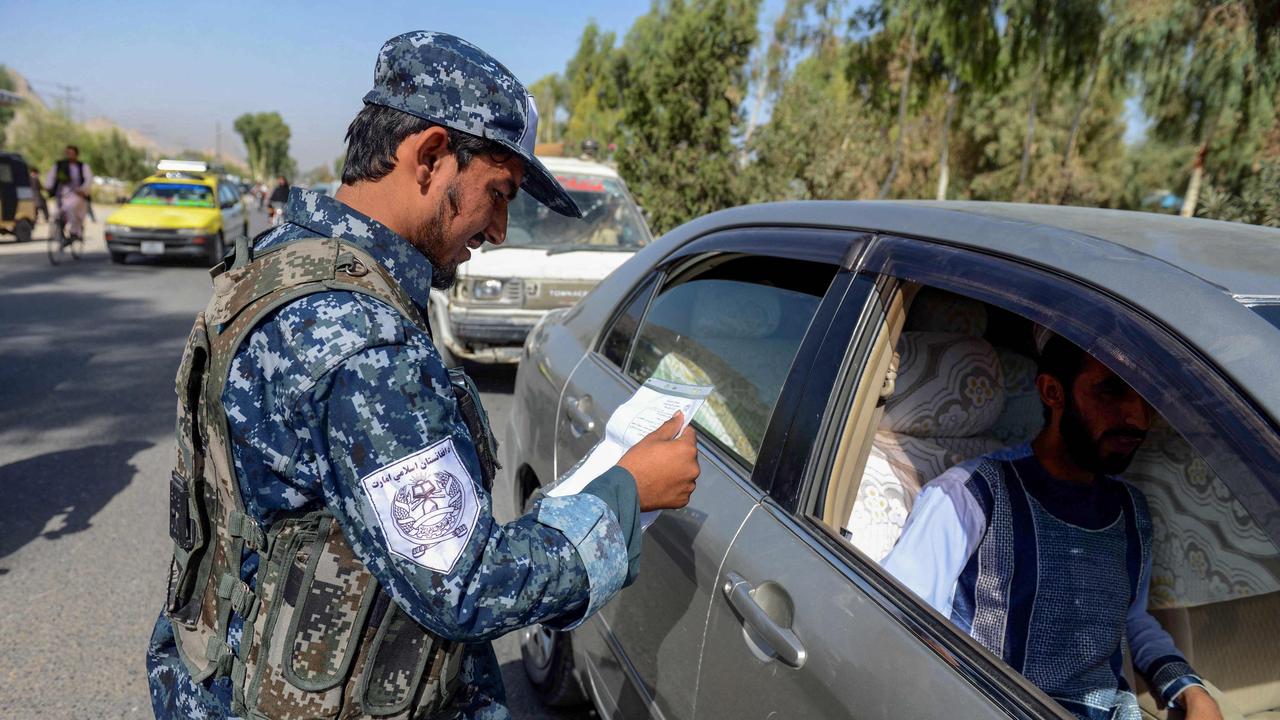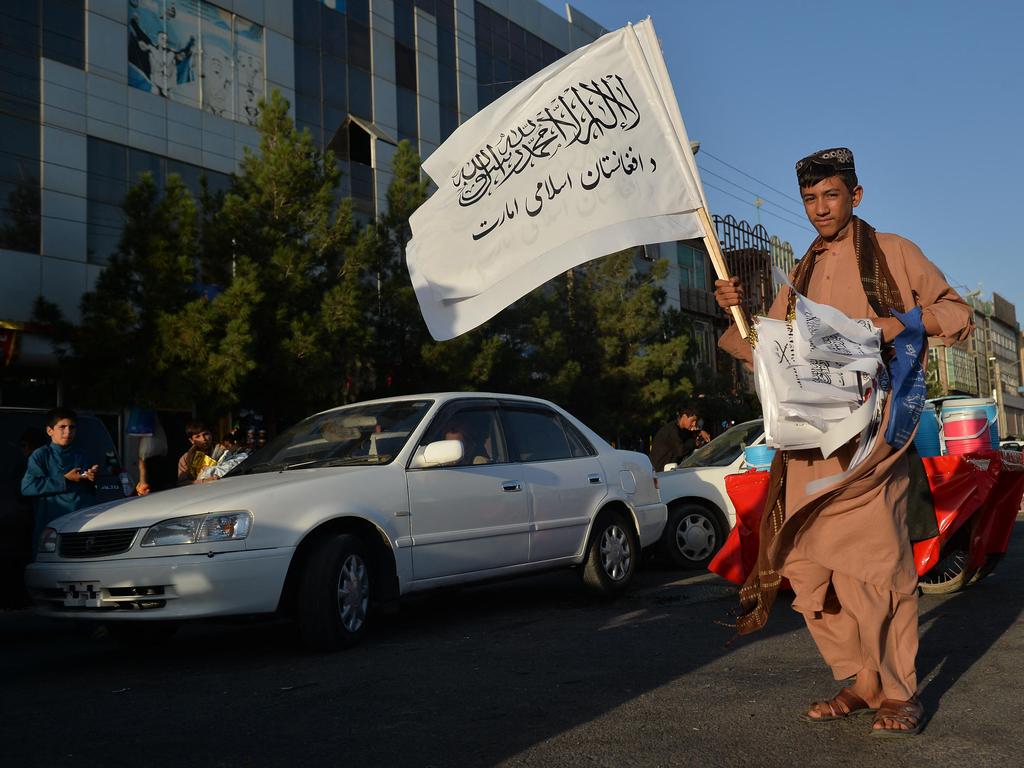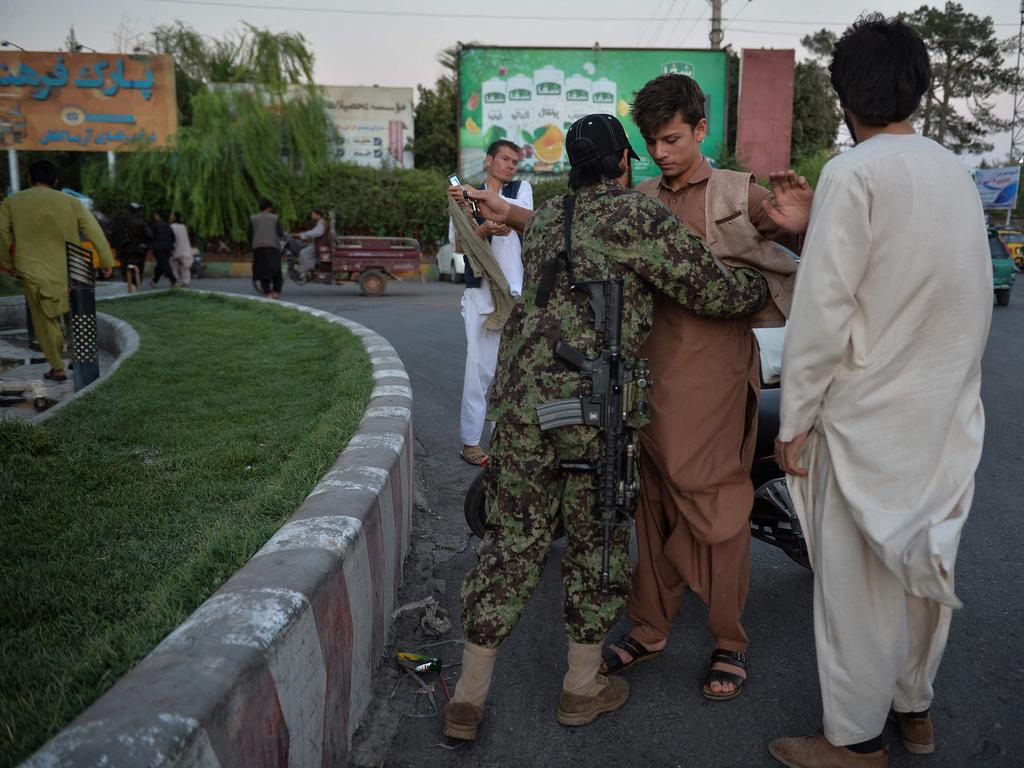Afghans left feeling hopeless two weeks into Taliban rule
It’s been two weeks since the Taliban officially took over Afghanistan, with the militant regime now fighting for international recognition.
It’s been two weeks since the Taliban officially took over Afghanistan, with the militant regime now fighting for international recognition and seeking to calm fears it will rule in the same brutal way it did in the late 1990s.
The United Nations is grappling with two requests – from the Taliban and a representative of the former Afghan government – who have both asked to address world leaders at this week’s United Nations General Assembly meeting in New York City.
The ambassador of the Afghan government ousted by the Taliban last month requested to speak, as well as the Taliban’s new foreign minister.
The UN is yet to decide who will represent the country at the world body, with a committee ruling on the request this week.
UN Secretary-General Antonio Guterres received a letter from Taliban-appointed Amir Khan Muttaqi “requesting to participate” in the high-level debate.

The letter also indicated that Ghulam Isaczai “no longer represents” Afghanistan at the United Nations.
He was the ambassador to the UN of the Afghan government ousted from power in August as US military troops exited the country, ending their 20-year conflict.
The Taliban also said that former president Ashraf Ghani was “ousted” on August 15, the day he fled the country.
“Countries across the world no longer recognise him as president,” the letter said, according to the UN.
No government has yet recognised the Taliban government, first demanding that it meet commitments on human rights.
Feeling ‘hopeless’ at new Taliban rule
The UN debate comes as Afghans are left feeling hopeless at the oppressive Taliban rule.
Merchants in the historic Afghan trading city of Herat fear for their future after being hit by Taliban tax collection and a backlog for goods to clear customs.
The country’s third-biggest city is a strategic hub along the ancient Silk Road – with nearby borders to Iran and Turkmenistan – and is a key generator of revenue for the country.

Although the Taliban blame rampant corruption by the previous government for a rise in costs for importers, businessmen in Herat say they face going under if the hardline Islamists do not lower taxes.
“I’m feeling really hopeless,” merchant Faghir Ahmad told AFP.
Prices rise as cash in short supply
Since the Taliban stormed to power in mid-August, food prices have gone up, the cost of fuel has risen and there are fewer opportunities to make money.
Afghanistan’s central bank has access to only a fraction of its usual financing, and is cut off from the international banking system and its own foreign currency reserves.
It means cash is in short supply and banks are enforcing a weekly withdrawal limit of $200 per person.
“First when the Taliban came, the people were very happy because we saw that security was coming, but unfortunately now the price for everything has gone up and people aren’t able to afford things,” said Ahmad, who imports food into the western city from Iran.
Ahmad was one of about 40 Herat business leaders at a rowdy commerce meeting this week, complaining of taxes and a backlog of 3000 trucks waiting to be processed.
Customs officials were long accused of taking bribes from traders, pocketing the cash instead of collecting revenue for state coffers.

Taliban spokesman Zabihullah Mujahid told a press conference yesterday that the Taliban hadn’t raised taxes, but were rather collecting them properly for the first time.
“The system under the previous government had a lot of problems with corruption, but it was OK,” said Abdul Latif Yousufzei, who trades in food and cleaning products.
“Under this [Taliban] system we do not have any problems with corruption but the taxes have been raised, and we cannot pay that much. I’m really not hopeful for the future.”
At Herat’s customs clearance centre this week, workers unloaded plastic bottle tops, plates, salt cakes and long-life cream cheese from trucks into warehouses in the midday heat.
The labourers told AFP that since the Taliban took control of the facility, their already-meagre wages have gone down, and sometimes they don’t know if they will be paid at all.
Mir Allam, 70, sat with a group of fellow workers in the shade next to a truck after a shift.
“We did tough work but we got less money,” he said, telling AFP he had just been paid about $US1.25 for unloading a 20-tonne truck with six others.
Another worker, who did not want to give his name, said that under the previous system he was paid immediately after unloading a truck.
“Now, when we have finished the work, it’s not clear if they will pay us or not.”

Younes Qazizadeh, head of the Herat Chamber of Commerce, said he was working with the merchants and the Taliban to reach a resolution, adding he believed business should never be related to any political system or regime.
“When any new regime comes to a country there will be some problems,” he said.
“People came here to speak their voices and they are lobbying the Taliban government to bring changes for the trade of Afghanistan,” he said.
“We also hope that these changes will come and it’s going to be much better.”
Herat’s deputy governor agreed there had been “some problems with the taxes”, but that a solution was being worked on.
“We wrote down the requests of some of those traders and we sent them to the finance ministry,” said Shir Ahmad Mohajer.
“They are going to send a delegation to Herat to listen to the traders, and we are going to act.”





